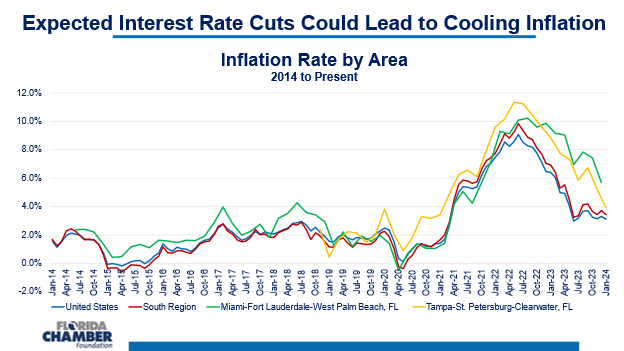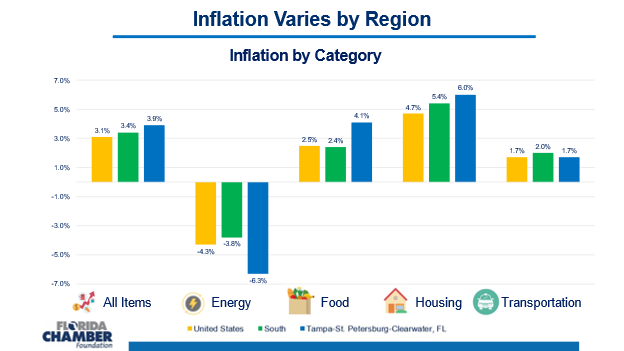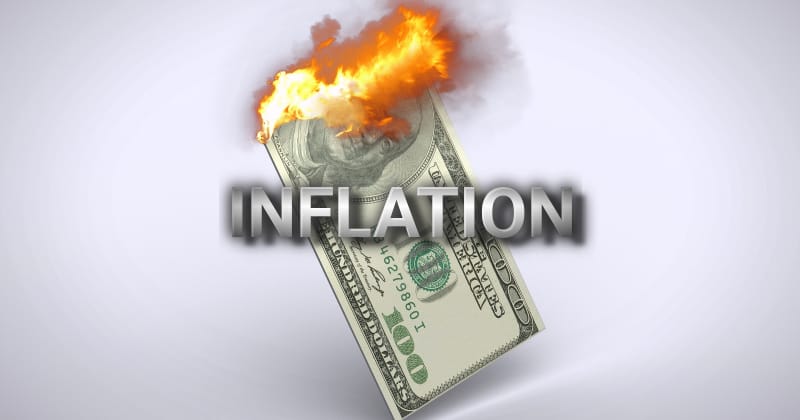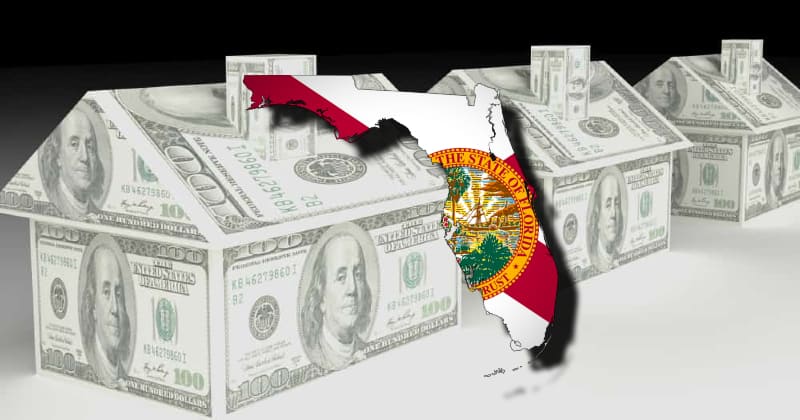Below is a report from the Florida Chamber of Commerce regarding the latest data on inflation and its impact on the state’s economy.
Rising inflation concerns have been on the top of both consumer and business leaders’ minds heading into 2024. Beginning in 2021, inflation in the U.S. started to climb rapidly, hitting its peak in mid-2022. Since then, inflation has experienced a period of cooling, but still remains well above the stable levels from years prior. The first inflation rate release of 2024 shows that inflation is continuing to slow, but not at the pace that many economists expected.

January’s national inflation rate dropped 0.2% from December, now sitting at 3.1%. The southern region’s inflation saw a slightly larger decline of 0.3% but is still higher than the U.S. at 3.4%. Zooming in even further, Florida’s metro areas show even higher inflation, as the Tampa-St. Petersburg-Clearwater MSA has an overall inflation rate of 3.9%. The Miami-Fort Lauderdale-West Palm Beach metro area consistently has the highest inflation rate in the entire country, at 5.7% in December (the latest inflation data for the area). These declines across all areas do not mean that prices are decreasing, just that many items are getting more expensive at a slower pace than we have experienced over the past 18 months.
The CPI, or Consumer Price Index, measures the change in prices for a variety of consumer goods. The annual change in those prices, which is the inflation rate, is measured in eight major categories. Although inflation persists overall, the recent cooling was led primarily by a decrease in energy prices. Differing from overall inflation trends, the energy component of the CPI not only saw a decline in inflation, but actually experienced deflation – or a drop in prices. Categories like housing and transportation, which fluctuate less than energy and food prices, saw increases at the national level and in the Florida regions. Inflation continues to be the highest in the category of housing, hitting 6.0% in the Tampa metro area.

Economists, consumers, and businesses are awaiting the release of February’s inflation rates, which will give us a better sense of how inflation is changing compared to expectations. In January, the decline in the inflation rate was promising, but still happened at a rate that was slower than expected. One month is not yet an indication of a trend, but a slower downward movement in the rates could complicate the projected drop in interest rates. If inflation does not begin to slow at the expected pace, the Federal Reserve will likely hold off on cutting interest rates in efforts to not exacerbate the already high levels of inflation.















